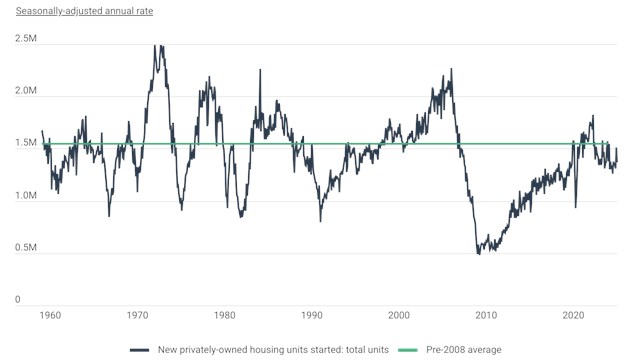In New York, buying and selling real estate is almost a contact sport. The hours are long, the stakes high, the customers savvy and demanding. In a city of eight million people, there are thousands of real estate brokers, but only an elite handful who successfully operate in the stratosphere, brokering multimillion-dollar deals, managing rosters of super-rich clients, and handling some of the most breathtaking residential properties on the planet with aplomb.
Call them the superbrokers. One of their number, Jacky Teplitzky, is the executive vice president at Prudential Douglas Elliman, and recently spoke with The Cooperator about her career, her trade secrets, and her take on New York City real estate.
The Cooperator: You have an unusual background for a New York broker.
Jacky Teplitzky: “Yes, I started out in the business with a handicap. I was not born here, I was not raised here, and I did not go to college here. Usually you have a lot of contacts. I didn’t.”
What brought you to New York?
“I was born in Chile, we emigrated to Israel when I was ten, and I came to New York when I was 29. I worked in the travel industry and was sent here by a company — not related to real estate — to manage their New York office.”
And then you changed careers.
“One of the ironies of life — nobody wanted to hire me. But they did eventually. First at Corcoran, then at Prudential Douglas Elliman.”
How did you approach the job, being that it was all so new to you?
“What I brought to the table was a corporate and business background. I integrated this into the way I do business. Other brokers were different. They only worked part-time, or maybe they were married to very successful doctors or lawyers who had contacts.”
Yes, a disproportionate number of so-called superbrokers seem to be women. Is this because women are naturally better at this than men? Coincidence?
“No. If you go back 20 years, historically, Manhattan real estate was conducted by women who lunch. There were no computers. You just had a Rolodex of contacts, and you’d call your friends and say, ‘Who wants a classic eight?’ You weren’t viewed as a breadwinner. You either did it to supplement your husband’s income, or because you had nothing else to do. Men looked for a steady paycheck, not commissions — and all of our income is based on commissions. From the beginning, [the field] was dominated by women. It was the equation: home equals women. Men had other responsibilities, traditionally.”
When did men get involved?
“Real estate has gone through an evolution in the last ten years or so. There was always big money to be made, but not big big money until the last ten years, and that’s when you began to see more men in the business.”
But you never had that Rolodex of contacts. And neither do a lot of people — male or female — who might be interested in this as a career. So how did you manage?
“I watched the different brokers. I studied how they did things. And then I did everything differently.”
For example?
“They specialized in one neighborhood. I felt that New York City is a changing market, and so I shouldn’t do that. I immersed myself in the industry so that I’d know everything about every neighborhood. They were sole brokers, who worked alone. I put a team together — the Jacky Teplitzky team — a corporation within a corporation that produces everything on its own. We have our own graphic designer, so our materials have a distinct look.”
“I also hired a business manager, someone from outside, to look at the business, to put together a master plan — how to go from one segment to another. And of course choosing the right people to join the team, so you can have a synchronized machine, and know who’s in charge of what.”
Real estate brokers tend to operate on the QT. Are you spilling your tricks of the trade here?
“I don’t mind. By the time they’ve absorbed all this, I’ve figured out new things.”
So it’s part of your strategy to court attention from the public.
“Yes. I do a lot of public speaking — not just at financial institutions but also at the public library. I do things out of the ordinary and get my name out there in different ways. What else I did was I hired a publicist. When I did that, people looked at me like I was out of my mind. ‘What are you, a celebrity?’ The thing is, I know I’m good; I want everyone to know I’m good.”
Speaking of celebrities, how do you deal with them when you do deals? I’m assuming some of your buyers are celebrities.
“The first thing is, you don’t talk to celebrities. You talk to their people —their business managers, their publicists.”
Do celebrities require more discretion?
“Sometimes they don’t want anybody to know they’re selling, but if the money isn’t right, then we use the name. Not in the Times, just on the street, word of mouth. Because if you have two apartments in the same building — it might be the exact same apartment, on different floors — and one is owned by a celebrity and one is not, the celebrity’s apartment will sell for more. That’s just how it is. So most will use it to get the highest possible price.”
Do you accumulate a list of celebrity clients, or…?
“It’s like a clique. The models tend to use the same people, and the rockers use other people, and so forth. They go by recommendation.”
Any colorful stories involving celebrities?
“Not celebrities, but there’s one I remember. I was showing a five-million-dollar apartment to a Brazilian family, and the wife went right into the master bedroom, looked around, and said she couldn’t live there because there was no way to place the bed so that her toes weren’t facing the window. And there’s no way I could have known about that!”
What about the screening process? Can you take one look at someone and know right away that there’s no way they could buy a five-million-dollar apartment based on their sneakers or something?
“No, it’s mostly done on the phone or in the apartment itself. I explain the rules of the co-op — some of them, for example, require four times the sale price of the apartment in net worth, so if you’re buying a five-million-dollar apartment, you have to have twenty million in assets. I explain this to them, and if I hear choking…”
Then you know.
“Then I know.”
Aside from the obvious price-tag issues, how are super big-ticket sales different from more run-of-the-mill deals?
“They take longer. A $500,000 apartment takes about six months to sell. It can take a year to sell the more expensive ones. How many people can really buy a ten-million-dollar apartment? You have to find them. You have to be much more creative. You have to target different avenues. Used to be only a blue-blood Park Avenue person could buy. Now you can have a hedge fund guy or woman. You have to have a good network. You have to be unorthodox.”
What’s more popular with the high-end crowd these days, co-ops or condos? And why?
“Co-ops — but it’s changing. It used to be that a lot of people wouldn’t consider condos, because they were transient, they were in a bad location, and they weren’t big enough. Condos tended to be just one-bedrooms, maybe two, and studios. The apartments on Madison and Park Avenues, and on Central Park West are all co-ops. But there is a shift. They are starting to build large condos, three bedrooms and up. And people are considering them who wouldn’t have before. I mean, the Plaza is condos.”
Your answer might be different than someone else’s on this next question — but in your estimation, are superbrokers more about volume or value? In other words, is the money made more with one big deal, or a lot of smaller ones?
“A little of both. We don’t discriminate — meaning we put the same amount of effort in a five-million-dollar apartment as in a five-hundred-thousand-dollar one. We sell in different sections of the city. We don’t put all our eggs in one basket. What happens if, say, the million-dollar apartment market is slow? Do you starve? No. I’ve been doing this ten years now, seven of them successful. Some brokers have a few spectacular years, followed by a down year. I promised myself when I started that I would not have that. My goal was to have every year be better than the previous year, regardless of the market.”
And have you met your goal so far?
“Yes. Touch wood, I have to touch wood. Yes, I have.” n
Greg Olear is a freelance writer based in New Jersey.






Leave a Comment